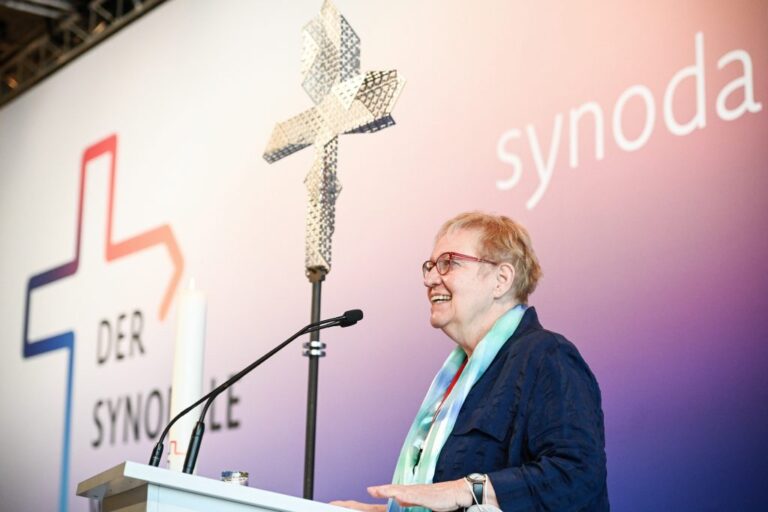The fourth synodal assembly of the German Synodal Way concluded on Saturday and notwithstanding certain bishops’ resistance to proposed changes concerning sexual ethics in the Church earlier on in the week, in what was a major development and contrary to previous Vatican instruction, participants voted to create a “synodal council” that would permanently oversee the Church in Germany on the final day of the event.
The meeting in Frankfurt saw the controversial suggestion win almost 93% of all votes. Only five bishops rejected the document, CNA Deutsch, CNA’s German-language partner agency, reported. Additionally, the bishops’ names are now a matter of public record because the vote was not by secret ballot — a change of procedure as a consequence of bishops blocking a pro-LGBT document on Thursday. After this revision was imposed by the councils’ organisers, all of the remaining texts were approved by both lay delegates and bishops.
According to the Frankfurt document, a synodal council would first necessitate a “synodal committee” to be formed, which then would evaluate the details of the new council.
Committee
This committee would comprise the 27 diocesan bishops, 27 members elected by The Central Committee of German Catholics (a lay body consisting of representatives of various Catholic organisations in Germany) and other 10 members jointly elected by them. The committee would be chaired by the president of the bishops’ conference and the president(s) of the lay organisation.
The permanent synodal council would function “as a consultative and decision-making body on essential developments in the Church and society”, the German proposal states.
More importantly, it would “make fundamental decisions of supra-diocesan significance on pastoral planning, questions of the future and budgetary matters of the Church that are not decided at the diocesan level”.
In order to make the council function, “it shall be supported by a permanent secretariat, adequately staffed and financed”.
The vote followed a Vatican declaration in July that stipulated the Synodal Way has no power “to compel the bishops and the faithful to adopt new ways of governance and new approaches to doctrine and morals.
“Prior to an agreed understanding at the level of the universal Church, it would not be permissible to initiate new official structures or doctrines in the dioceses, which would represent a wound to ecclesial communion and a threat to the unity of the Church,” it continued.
Jeopardised
The Frankfurt assembly was almost jeopardised on its first day, when a document calling for changes to Catholic sexual ethics failed to attain the necessary two-thirds majority among the bishops. The vote was greeted with protests and walkouts. The meeting’s schedule was temporarily suspended while bishops and lay delegates attended separate crisis meetings.
A total of 14 texts were due to be discussed at the assembly, with nine having their second reading. But only eight texts were ultimately considered and just four passed their second reading, The Pillar reported. When endorsed at the second reading, draft documents become official resolutions of the synodal way.
Other documents approved by the participants called for 1. A greater acceptance of non-heterosexual priests. 2. An evaluation of the exclusion of women from the sacramental ministry and greater opportunities for women to preach the Gospel, including at Masses. 3. Greater consideration for gender diversity, which include trans and intersex. 4. Changes to Church employment law. 5. Changes to the Catechism, which includes a re-evaluation of homosexuality in the Magisterium.
The German bishops will make their ad limina visit to Rome in November. Bishops’ conference chairman Bishop Georg Bätzing has previously intimated that he will raise the conclusions of the rejected document on sexual ethics with Vatican officials during the trip.
The Synodal Way members will convene again in Frankfurt on March 9-11 for final votes on the remaining documents, ahead of the meeting of the world’s bishops in Rome on synodality in October 2023.



